Creating a Bespoke CFD Simulation Template for Koenigsegg
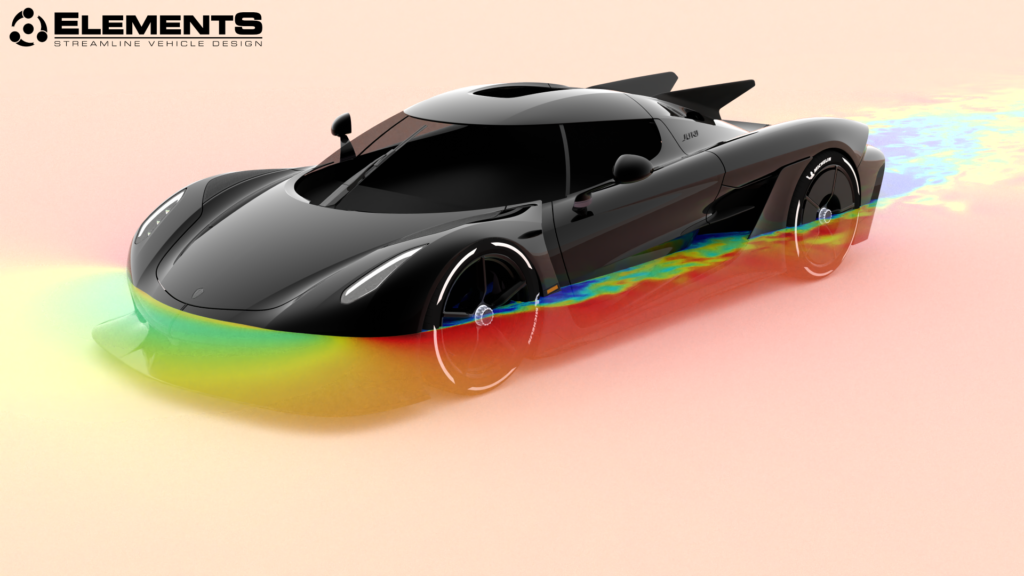
The automotive industry is currently enduring one of its most challenging periods to date. Manufacturers need to develop lighter, cheaper, more efficient vehicles whilst dealing with chip shortages, rising costs and the continued debate around powertrain technologies. This has demanded innovation and in 2020, €58.8 billion was invested in automotive R&D in Europe alone, the […]
ENGYS appoints Angus Lock as new General Manager of ENGYS North America
ENGYS achieved an impressive 22% increase in yearly revenue from the automotive and motorsport CFD markets in 2021, and this growth is set to continue in 2022 and beyond. A key to this success has been the combined accuracy, reliability and usability of ELEMENTS, which has encouraged many automotive OEMs and F1 teams to adopt […]
Streamline Solutions launches ELEMENTS v3.5.0 for Automotive CFD Design
ENGYS is pleased to announce the new release of ELEMENTS 3.5.0, an open-source based CFD software suite for vehicle design applications produced by Streamline Solutions LLC. This release also includes new versions of the add-on modules ELEMENTS-Adjoint and ELEMENTS-Coupled. ELEMENTS combines two simulation environments in one package: a dedicated virtual wind tunnel wizard for modelling […]
Streamline Solutions launches ELEMENTS v3.4.0 for Automotive CFD Design
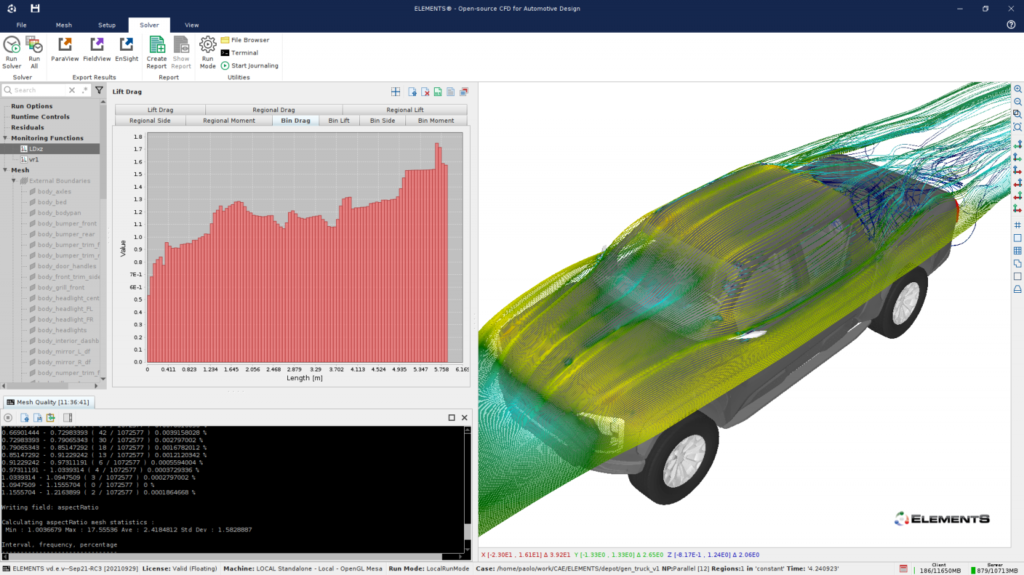
ENGYS is pleased to announce the new release of ELEMENTS 3.4.0, an open-source based CFD software suite for vehicle design applications produced by Streamline Solutions LLC. This release also includes new versions of the add-on modules ELEMENTS-Adjoint and ELEMENTS-Coupled. ELEMENTS combines two simulation environments in one package: a dedicated virtual wind tunnel wizard for modelling […]
Benchmarking CFD for External Aerodynamics

Enzo Ferrari famously said “Aerodynamics are for people that can’t build engines”. But in today’s efficiency driven world, aerodynamics is one of the most important development areas for OEM’s. New regulations demand vehicles to maximise fuel economy and minimise emissions, leading engineers to design aerodynamically efficient cars.
Streamline Solutions launches ELEMENTS v3.3.2 for Automotive CFD Design
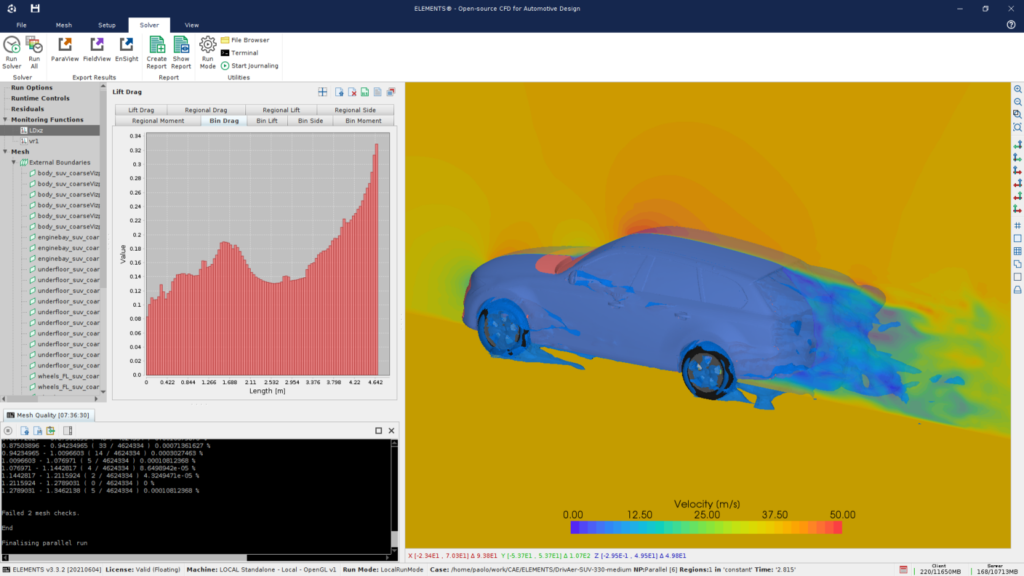
ENGYS is pleased to announce the new release of ELEMENTS 3.3.2, an open-source based CFD software suite for vehicle design applications produced by Streamline Solutions LLC. This release also includes new versions of the add-on modules ELEMENTS-Adjoint and ELEMENTS-Coupled. ELEMENTS combines two simulation environments in one package: a dedicated virtual wind tunnel wizard for modelling […]
HELYX and ELEMENTS Learn by Example CFD Series
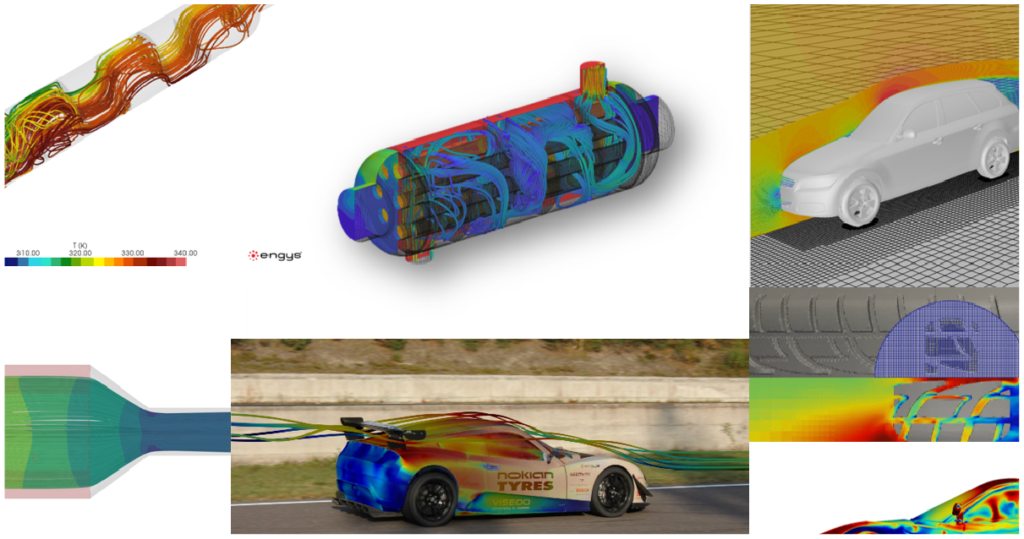
Last year was a busy year at ENGYS for webinars, with more than 17 different sessions and even more virtual events (See Table 3 at the bottom of this post). Since most simulation engineers were working remotely, we saw a huge uptick in webinar attendance, especially for our introductory talks on ELEMENTS and some more […]
Streamline Solutions launches ELEMENTS v3.3.1 for Automotive CFD Design
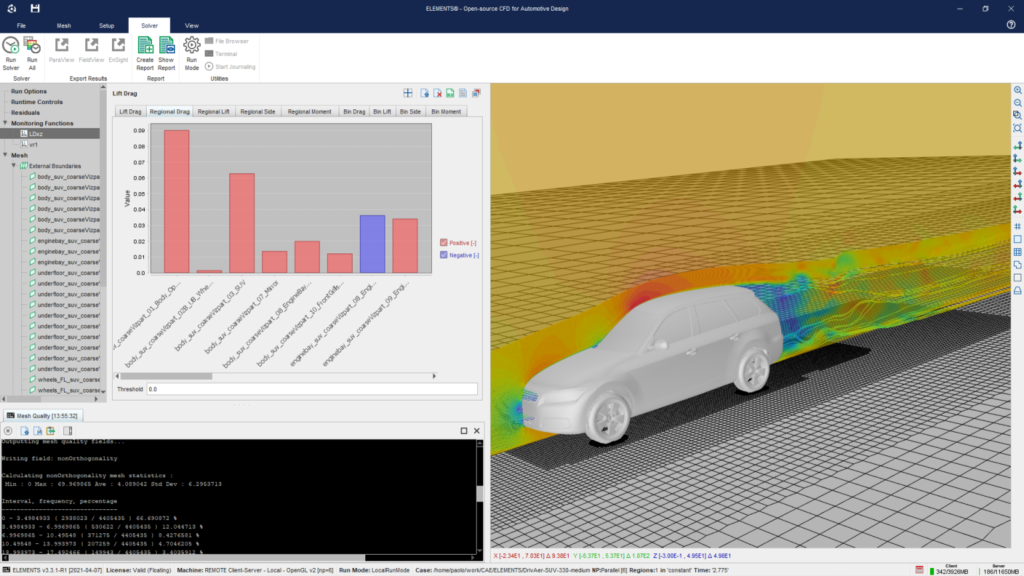
ENGYS is pleased to announce the new release of ELEMENTS 3.3.1, an open-source based CFD software suite for vehicle design applications produced by Streamline Solutions LLC. This release also includes new versions of the add-on modules ELEMENTS-Adjoint and ELEMENTS-Coupled. ELEMENTS combines two simulation environments in one package: a dedicated virtual wind tunnel wizard for modelling […]
Power in Numbers: Assessing Vehicle Convoy Aerodynamics with CFD Simulation
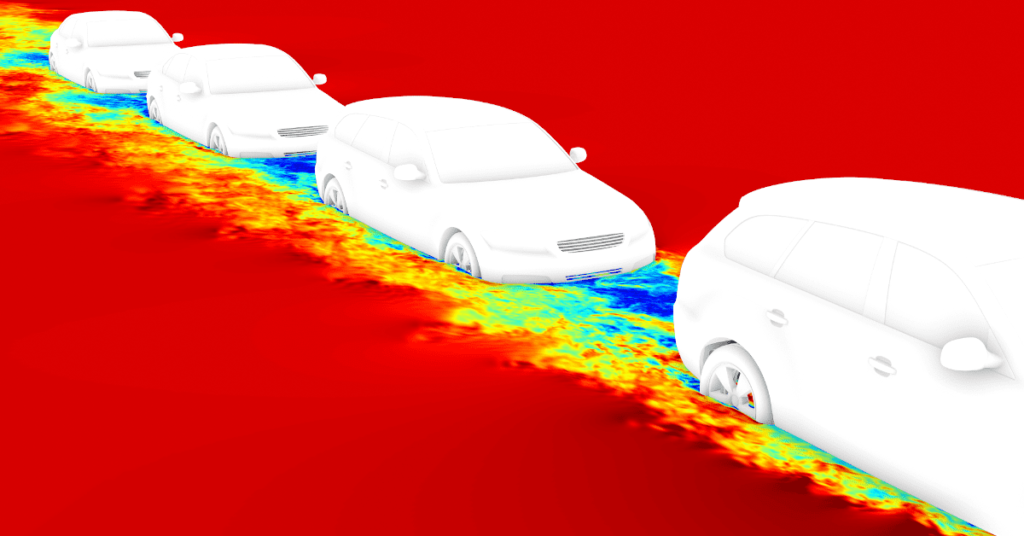
While the idea of autonomous driving has been around for many decades, recent advances in software, computational power, sensors and mobile communication techniques have accelerated the development and understanding. Already, drive assistance systems, such as lane holding, cruise control and emergency braking have made it into production cars, making a ride in a vehicle more […]
Streamline Solutions launches ELEMENTS v3.3.0 for Automotive CFD Design
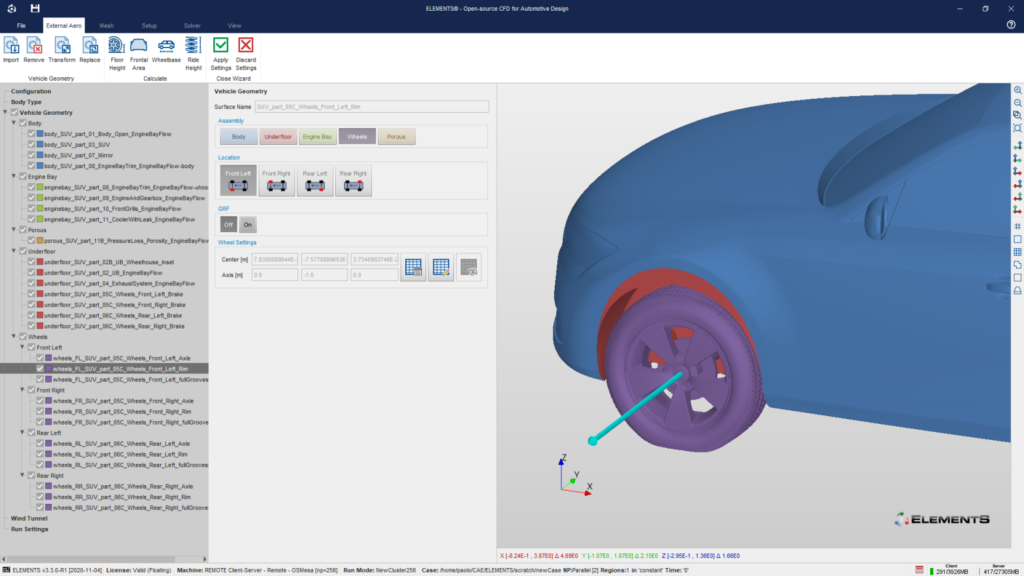
ENGYS is pleased to announce the new release of ELEMENTS 3.3.0, an open-source based CFD software suite for vehicle design applications produced by Streamline Solutions LLC. This release also includes new versions of the add-on modules ELEMENTS-Adjoint and ELEMENTS-Coupled. ELEMENTS combines two simulation environments in one package: a dedicated virtual wind tunnel wizard for modelling […]